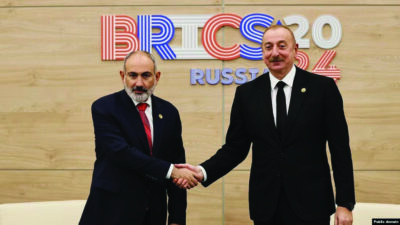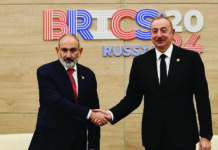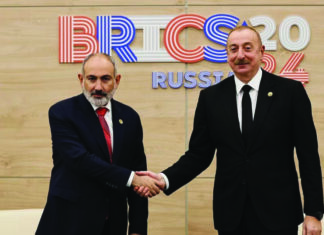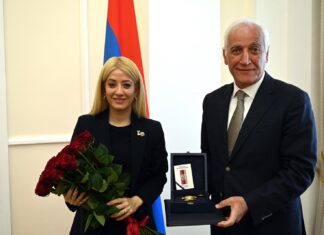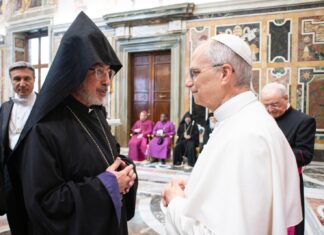FRANKFURT, Germany — Turkish citizens who went to the polls on April 16 were saying “yes” or “no” not only to a new constitution but to the future of relations with Europe. This was the interpretation offered at a public debate organized by the Friedrich Naumann Foundation, a think-tank linked to the German Liberal Party (FDP). Convened on May 19 near Frankfurt, the event addressed the theme: “The Sick Democracy on the Bosporus: Is Turkey Taking Leave of the West?” The round table, moderated by Dr. Rainer Hermann, who was the Frankfurter Allgemeine Zeitung’s correspondent in Turkey for more than a decade, brought together prominent politicians who have been involved in bilateral relations with Turkey.
Dr. Hans-Georg Fleck, current director of the think-tank’s Istanbul bureau, was joined by Dr. Jörg-Uwe Hahn and Nicola Beer, both members of the regional parliament in Hessen.
It was clear from the opening greetings by Hahn, that the political deterioration inside Turkey had cast a pall on relations with Germany. Over the past ten years, the Hessen government has tried to develop ties, both on the city and state level, and was the first to set up partnerships with Bursa. Now, Hahn said, he was very saddened, since contact has been interrupted; his counterpart, the Vali of Bursa, is now sitting in a jail, along with hundreds of thousands of other Turks accused of association with the Gülen movement, officially inculpated with the coup attempt last summer.
The outcome of the referendum has only aggravated this state of affairs. As Fleck detailed in his introductory analysis of the vote, those who supported the new constitution in hopes of achieving stability and security would be disappointed; the enhanced powers granted to President Recep Tayyip Erdogan will neither help alleviate economic ills, especially growing unemployment, nor contribute to solving problems deriving from the oppression of the Kurdish (and other) minority populations. The collapse of the tourist industry (which he characterized as more important for Turkey than the auto industry for Germany) and falling currency rates have resulted from the political crisis following the coup attempt and massive crackdown. Economic revival will depend on development of the younger population, which will require advances in education, which, he said, would not benefit from the referendum results. If the education system in the country was already abysmal, the mass firings of competent academics have worsened the situation. These teachers have lost not only their jobs, but their pensions, their social standing and, in many cases, their very freedom. The situation in the judiciary, where young, inexperienced judges have replaced those thrown out, the perspective is as bleak.
That said, the speaker hastened to stress that the results were indeed very close, as nearly half those who cast their ballots voted against the changes, and thus against Erdogan’s move towards autocratic rule. Rejecting the “yes” voters’ illusions of regaining some mythical Ottoman glory, the “no” camp, which included Kemalist and pro-minority voters, is characterized by its pro-Western, pro-European orientation. The question for Turkey’s partners in Europe is: how to deal with this highly polarized population? How to provide support for the very substantial sector of Turkish society which is adamantly opposed to Erdogan and the AKP’s dictatorial ambitions?
Should Turkey Enter The EU?
